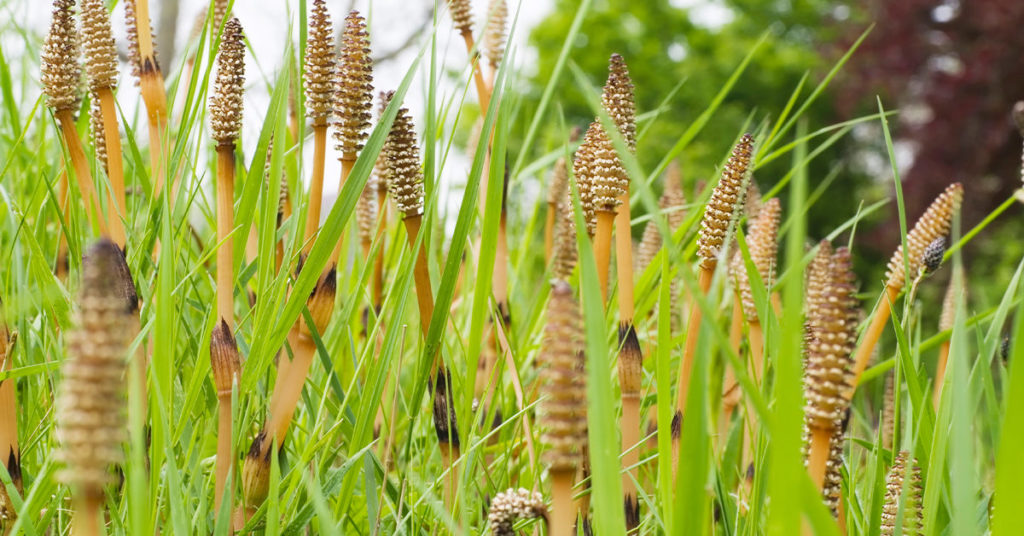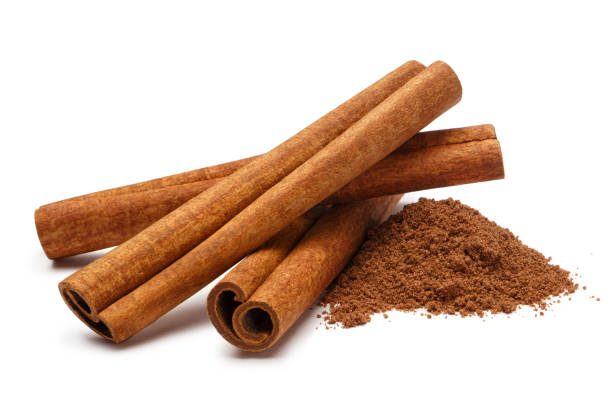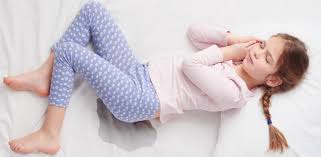Bedwetting is the involuntary passing of urine, especially at night. It always occurs unintentionally. Apart from younger children, 1-2 % of adults suffer from Nocturnal enuresis. In toddlers, wetting is normal. 1,2
Studies show that many toddlers can control daytime wetting at four years. By the age of 6-7 years, most children outgrow bedwetting during their sleep hours.3,4
Although normal in little kids, bedwetting in adults can signify some health problem or underlying medical condition. There are variations in the age by which an individual should exercise absolute control of the bladder.
This article discusses the effects, causes, risk factors, prevention, and home remedies to manage bedwetting.
Is bedwetting a mental disorder?
A 2008 medical research shows that nocturnal enuresis past five years is a mental disorder.
Another 2016 national institute of health study proves a significant relationship between primary nocturnal enuresis and anxiety disorder. Most children who wet the bed past 5 years have significant signs of stress and mental problems
A peer reviewed study poise that the brain produces hypothalamic osmoreceptors that control urine flow rate and excretion.(1)
Most children experience the mental ability to stop wetting the bed at age 5.
Is bedwetting hormonal?
The secretion of body fluids in the kidney is controlled by a hormone called ADH. Hormonal imbalances or deficits in nocturnal antidiuretic hormone may lead to primary nocturnal enuresis.1,2
A 2013 study further shows that the imbalance in antidiuretic hormone (ADH) secretion is genetically inherited from family history; if both or any of the parents are wetting the bed, it’s easier for their child to wet the bed.
Brain bladder control is hormonally driven; hence wetting the bed is hormonal. The atrial natriuretic hormone also affects the secretion of water and sodium in the human kidneys. The site complies with the national health institute’s research findings.
At what age should you be concerned about bedwetting?
Primary nocturnal enuresis affects 5-10% of children under 7 years in the US. Early childhood enuresis is normal below the age of seven. Past the age of 6, most children often have bladder control.
If your child continues to wet the bed past seven years, you may lovingly interrogate and find out the problem.
A 2013 study shows that nighttime bladder control is influenced by proper potty training. At 9 months, children with proper potty training will not wet the bed.
Effects of Bedwetting in Adults
Bedwetting issues may have a severe impact in and after teen years. The frequent exchange of your bed sheet is a stressful event when you experience bedwetting in adulthood. Below are some effects of secondary bedwetting.
- Feeling ashamed.
- Loss of self-esteem and emotional distress.
- Broken social ties.
- Lack of self-confidence.
- Guilt and embarrassment.
- Lack of quality sleep.
- Fear of underlying problem.
Common Risk factors for bedwetting in children or primary bedwetting: –
Bedwetting in adults and kids has various risk factors. The ability to develop enuresis depends on the following.
- Gender, boys have prolonged experience of bedwetting than girls.
- Family connections and lineage. In most cases, if one parent had the same experience, it might be passed down to the offspring.
- Bedwetting is common in children and young adults having the attention deficit hyperactivity disorder.
- Sexual abuse.
- Deep sleepers have an increased risk of bedwetting.
- The overall physical and emotional health of the child.
- Maturity and development of the child.
- The child’s kidneys are not fully developed.
- Change of environment like a new school.
What are the common causes of bedwetting in adults (Secondary nocturnal enuresis)?
In adults or secondary nocturnal enuresis, causes of bedwetting are due to other medical conditions. These may include:
Small urinary bladder
When you have a small bladder, it can hold less urine. The brain is triggered that the bladder is full when very little urine is in the bladder. At night when there is unconsciousness, there is a high chance to wet the bed. 5,6
Hormonal imbalance
ADH controls the amount of urine released into the bladder. If there is instability in its release in the body, more urine might be passed into the bladder at night, resulting in bedwetting.7,8
Estrogen hormone also offers support for the sides of the female bladder. If the levels are low, the bladder feels squeezed and passes a lot of urine. This condition is prominent in women who are in menopause.9
Bladder instability
Over reactive bladder is characterized by a sudden urge to urinate, which is difficult to control. You’ll feel to pass urine frequently because of a loose bladder. Another indicator is the inability to hold urine in the bladder when the bladder is full.
So, if you suffer from this condition, you will pass urine immediately if you feel the urge to pass it out. Individuals having this condition are prone to wet their beds.10
Urinary tract infection
Urinary tract infections cause frequent need to urinate. This occurs even when the bladder is not full. One of the urinary tract infection symptoms is the uncontrolled urge and frequent passage of urine.18
The enlarged prostate gland in males
A 2009 study shows that involuntary urination is a sign of prostate cancer. Enlargement of prostate glands results in bladder control problems.
Diabetes
Two significant signs of diabetes are excessive thirst and frequent urination. When you have a lot of sugar in your system, the kidneys will work harder to rid it. In the process, much urine is made and passed into the bladder. 10,11
The flow continues even when you are sleeping. The high concentration of hormone insulin in the body may also lead to the frequent passage of urine.
If the child frequently stay dry at night, then suddenly starts wetting the bed, it might be a sign of diabetes. Other symptoms to affirm this suspicion include weight loss, increased thirst, etc.
Sleep disorders
Obstructive sleep apnea is a sleep disorder caused by difficulty in breathing. A study showed that 84% of sleep apnea patients experienced frequent nighttime urination.12
Medical associations research shows that nocturnal enuresis is an unusual sign of sleep apnea in adults.13
Pinworm infection
These are common in kids. Although they are not harmful, they irritate the urethra. This irritation releases urine from the bladder and leads to the uncontrolled passage of urine.14,15
A 2017 study shows that bedwetting is one of the symptoms of pinworm infection. Untreated patients may experience secondary bedwetting.
Chronic constipation
A 2018 medically reviewed study shows a link between functional constipation and bladder irritation in women.
Pressure is exerted on the bladder when bowels are distended due to constipation. This effect reduces the amount of urine you can hold in your bladder.16,17
According to systematic reviews, we find a link between bedwetting and constipation in rare cases.
Nervous system structural or coordination problem
This coordination problem is the cause of many cases of bedwetting. It is a condition where you can’t feel the physiological changes in the body.
Moreover, you cannot detect when the bladder is complete, and you should visit the toilet; hence tricky to stay dry at night.
A lot of fluid intakes, more so late in the night before sleep
In addition to the above causes, late intake of fluids will increase your urine volume into the bladder.
Limiting fluids late in the evening and at night may help a deep sleeper.
How do you stop bedwetting?
- Weight loss may help. A 2019 study found that obesity is linked to high incidences of enuresis.
- Limit your fluid intake after supper if possible don’t take any fluid at nightfall. A lot of fluid in the system will make the kidneys produce extra urine.
- Avoid caffeine-containing beverages, for caffeine is one of the bladder irritants.
- Make sure you go to bed with your bladder empty. You can do this by double voiding (pressing the urine several times you visit the toilet to ensure the bladder is empty).
- Ensure regular visits to the bathroom during the day.
- You may set alarm clocks at intervals in the night as the child sleeps to aid in visiting the toilet. It takes 21 days to form a habit. Within the first month of use, these clocks will help create a rhythm of night dryness.
- Studies show that changes in diet can help reduce bedwetting. If milk is removed from the diet, the chance of having dry nights is increased by 50%.
Parenting strategies on how to help children overcome bedwetting
Many parents fail to understand their suffering kids. Most children below the age of 7 should not alarm you when they still wet their beds.
A child starts developing complete bladder control at age seven. Moreover, it’s not a child’s fault to wet the bed, especially with a few bedwetting episodes.
However, past that age, here are some tips to help your child overcome bedwetting:-
- You must realize that bedwetting in kids is normal because their coordination and senses are not mature. They may not have a loose bladder, but they fail to realize the full bladder because of deep sleep.
- Bear in mind that this is not an ordinary phenomenon. Therefore, you must be delicate and discreet as you approach the issue. Children wet the bed unintentionally.
- Don’t blame the child; instead, offer support and encouraging advice. Make sure you maintain trust and love, wash the wet sheets, and replace them with others daily.
- Assure them of the ability to win the battle. Don’t make the child feel strange and unique.
- Don’t be furious when the kid wet the bed. Make sure your reaction to their mistake doesn’t make them give up the battle.
- Minimize their fluid intake from twilight to bedtime. Most children can have several dry nights if they limit evening fluid intake. Don’t let the child drink any fluid before bed.
- Make them develop the habit of visiting the toilet before going to bed. Let the child urinate before going to bed and empty the bladder completely.
- Ensure they take most of their fluids in the morning and the afternoon, and there is nothing the child drinks after that.
- The parents can help their children stop wetting their beds through emotional support and by promising them gifts for every dry night. Ensure that the toilets are accessible to the children during the night.
- When your child is wetting the bed, make sure you focus on the problem, not them. If your spouse has a problem, you bear the burdens together, showing sympathy and compassion.
- Get for your child bedwetting training pants to help gauge the development of the ability to reduce bedwetting episodes.

How do you teach a child not to pee on the bed?
- First, ensure the child has mastered potty training during the day.
- Check on them at night and encourage them to empty their bladder even when they don’t feel pressed.
- Ensure the children visit the toilet before bed even if they don’t feel like going. Watch on them till they finish urinating.
How do I teach my child to be dry at night?
Toilet trained children develop bladder control faster. Here are ways you may offer toilet training to your child:
- Tell the child to go to the toilet. In many cases, the child wets the bed due to the inability to use the toilet.
- Ensure you remove every hindrance like the inability to access the toilet at night.
- Offer praises and support
- Avoid punishments and threats
- Talk with the child about bladder training to restrict the involuntary passage of urine.
Home treatment for bedwetting in both kids and adults
You may do all the above set activities and occasionally experience the problem. Why so? Because the problem may be medical-related, thus requires treatment.
Follow these steps and procedures, and you will have a successful treatment for bedwetting: –
Do regular sits baths in women
Inconsistent passage of urine in adults may be because of UTI or irritation of the bladder. To help revert this, you can take hot water slightly above the average body temperature.
Procedure for sits bath
Grate 8 cloves of garlic and 2 sizable red bulb onions. Add 2 grated carrots to a basin, then add bearable hot water. Sit on the mixture for 15-20 minutes.
Then, wash your genitals with the mixture and rinse with warm water. Do this treatment regularly till all the irritation and the itching around the genitals are gone.
Stinging nettle or coffee Enema
Enemas will help men with enlarged prostate glands. With a complete Enema kit, fill it with coffee or nettle solution. Make the solution from warm water.
Then, allow the content to pass through the anal section into your system. And after the entire range is in you, you’ll feel a sudden urge for bowel movement.
Hold the urge for 15-20 minutes, and then visit the toilet. This treatment will help you cleanse your colon and detoxify your liver. The result will treat enlarged prostate and yield hormonal balance in the body.
Herbs for effective bedwetting treatment
Below are cosmopolitan herbs that will help you treat the condition of bedwetting. Use this along with the above preventive measures will bring sure results.
1. Corn (Zea mays) decoction or infusion

The stigmas of the corn have been used to treat the condition of bedwetting.
You only need to simmer the stigmas in water for 30 minutes, then sieve and drink.
For adults, take 4-5 glasses a day.
2. Garden Pansy (Viola wittrockiana) infusion.

Like you did with the corn stigma, use the leaves, and the flowers, then drink 4-5 cups a day.
3. Horsetail

Equisetum arvense is one of the ancient herbs that proved to have curative properties for bedwetting.
It’s used in form of tea. You steam the dry harvested leaves in hot water and drink. Studies prove that taking this tea for 4 days has diuretic effects.
4. Cinnamon

It is a good herb for heart, urinary tract health, digestive, and kidney diseases. In cases where bedwetting is because of infections in the system, chewing cinnamon can help you rectify the condition..
When to seek advice from the child’s doctor
Complete bladder control occurs differently among many children. It’s not definite when to see a healthcare provider over a child’s bedwetting.
It all depends on the situation and what the family members may consider a serious problem that needs the doctor’s attention.
However, in older children, below are some indicators you may consider sufficient to see the child’s doctor for a diagnosis.
- The child is past the age of 7 years, and bedwetting occurs frequently.
- If the child’s pediatrician advice you to seek an enuresis clinic
How doctors diagnose the cause of bedwetting
The standard exams for bedwetting consist primarily of questions concerning the child’s symptoms and other possible factors that may contribute to this condition. These include the following:
- Any underlying medical condition
- General growth and development of the child
- Medications
- History of any enuretic parent
- Any stressors or traumatic events at school and home
- Diet and drinking habits of the child
- Overall toilet habits
- Behavior of the child
- Other symptoms of neurological problems
What are medications for dry nights?
There is no specific medical care for bedwetting. However, your child’s doctor may prescribe desmopressin to slow nighttime urine production.
It’s advisable to visit adolescent psychiatry to check on any mental disorders. The child may be suffering from emotional problems.
Another medication often given to children who wet the bed is oxybutynin, which helps reduce bladder contractions and increase bladder capacity to hold more urine.
Moisture alarms may also be used on your child’s pajamas to detect the onset of moisture at night. The child wakes up at bedwetting alarms to visit the toilet.
Diagnosis of bedwetting in adults
- Checking for signs of infections or diabetes through a urine test
- Urinary tract tests
- Discussion of lifestyle, family history, bladder habits, and fluid intake
- Physical examination for any medical problem
- Blood tests for other signs of an infection
Take away
With the above lifestyle changes and treatments, you can overcome bedwetting. But if it persists, you should seek a medical checkup. Also, if you start experiencing this condition late as you age, check on your hormonal balance.
Finally, strictly follow all the preventive and curative measures, and recovery is inevitable. You may seek more information from the American family physician on nocturnal enuresis.19

